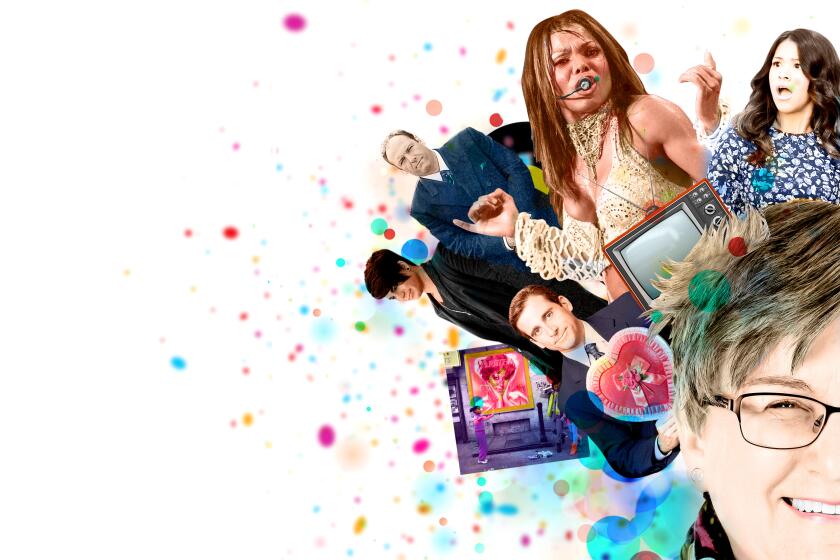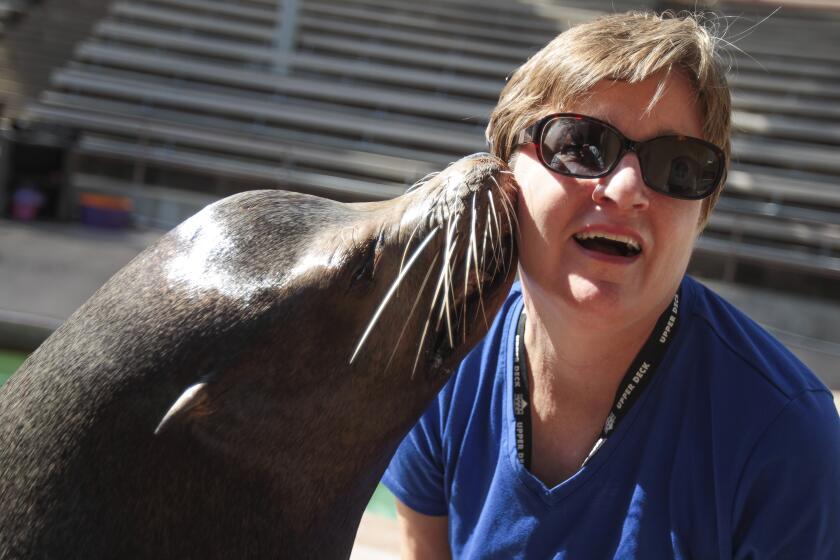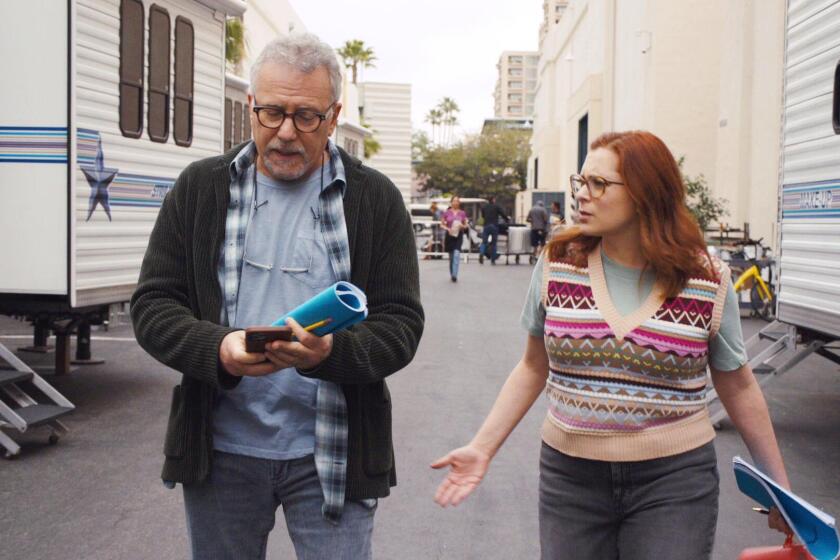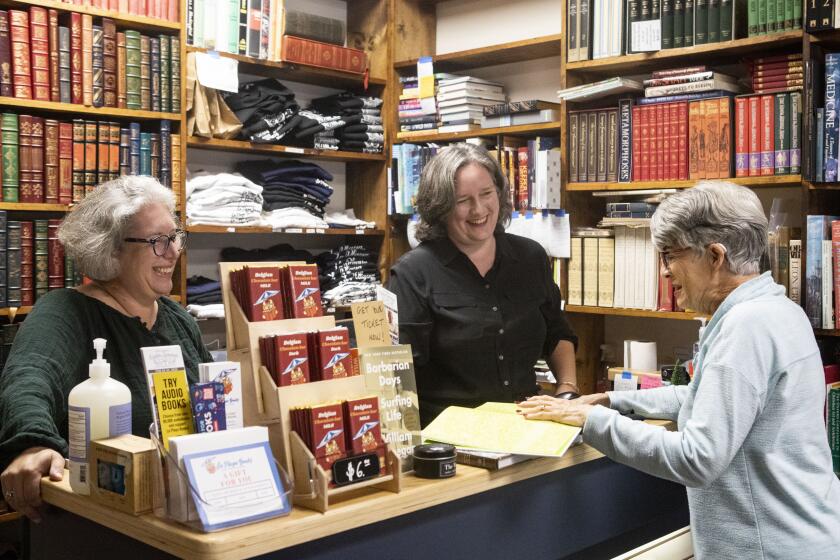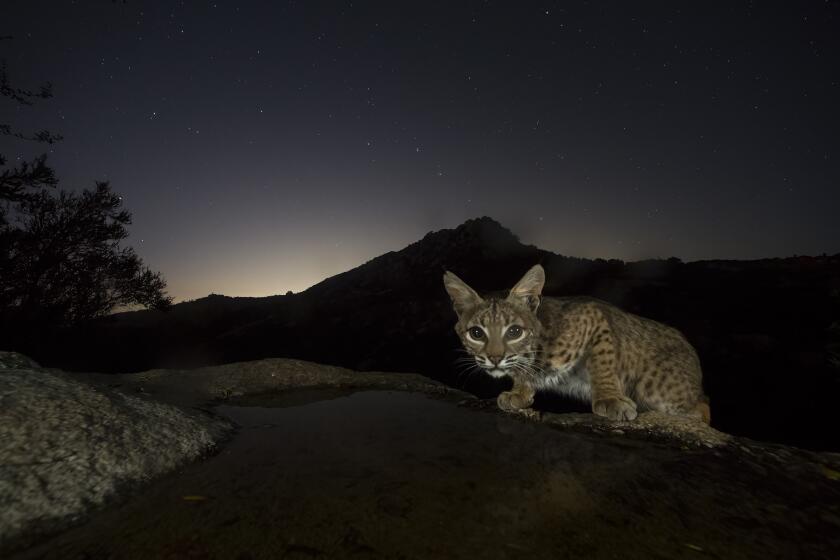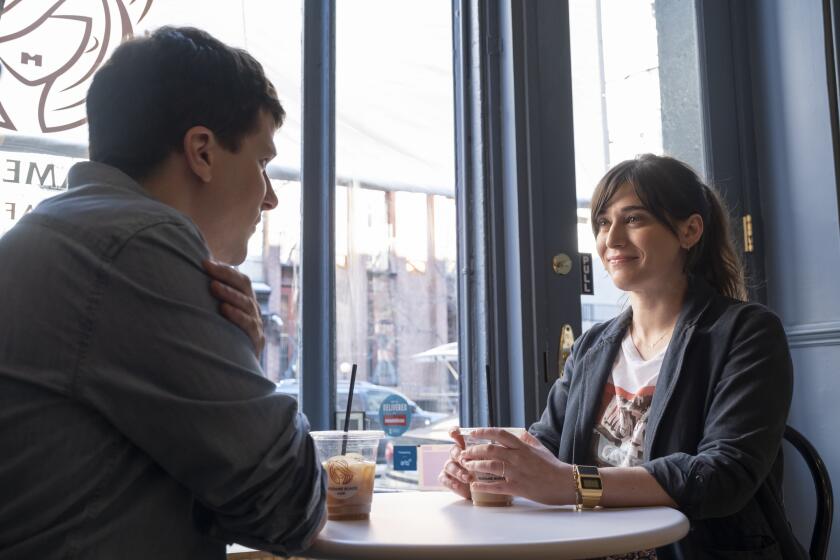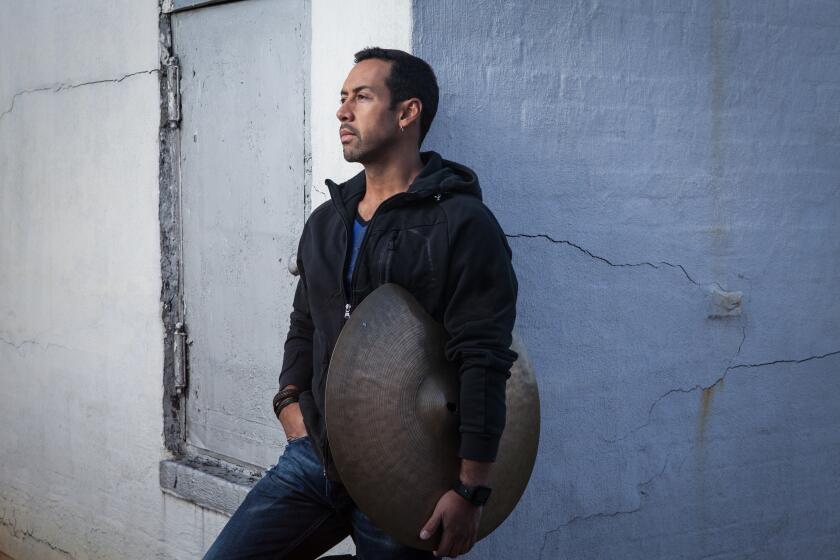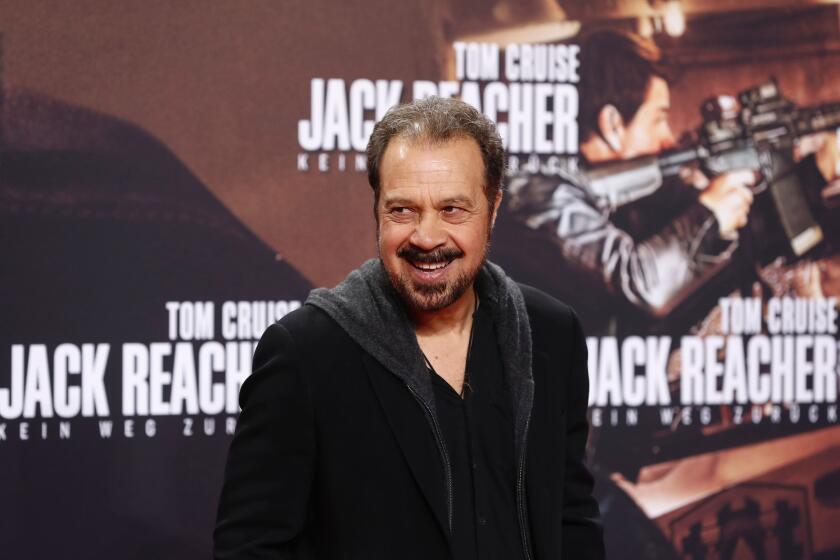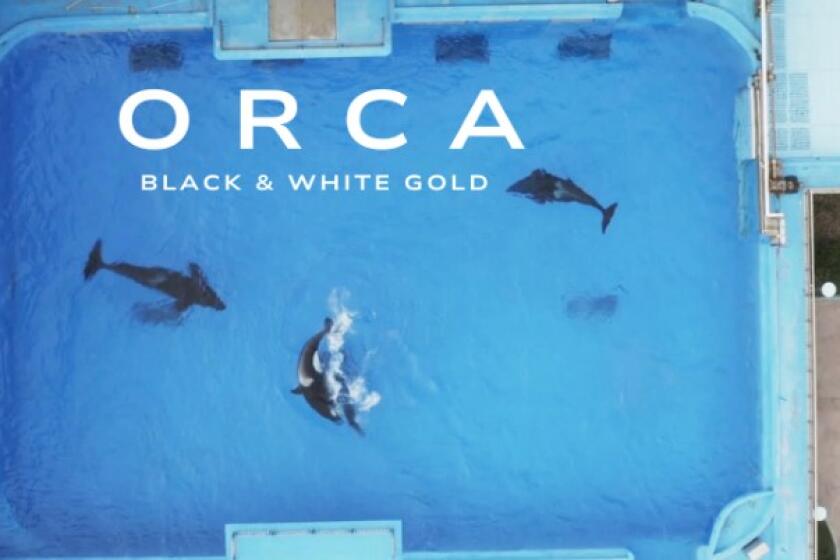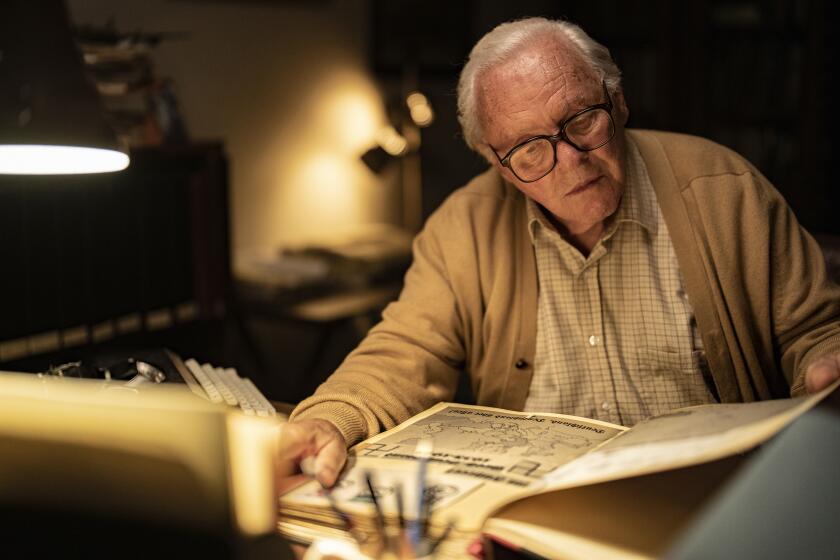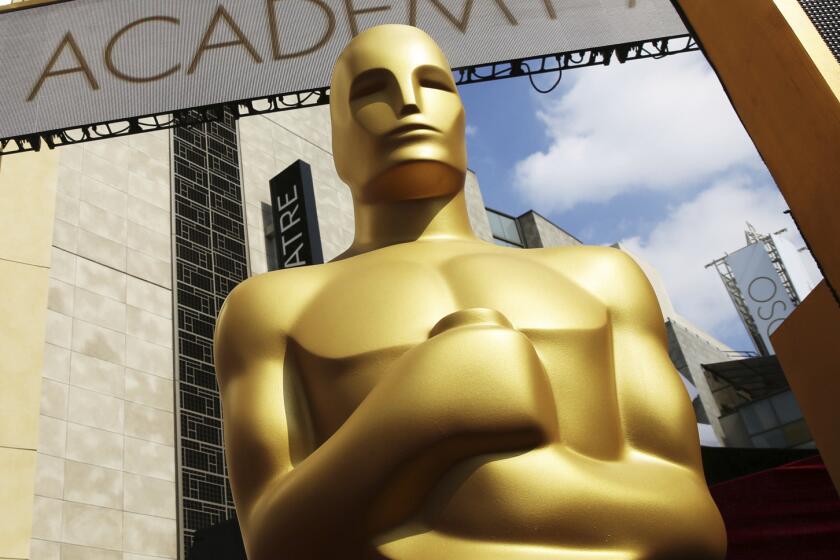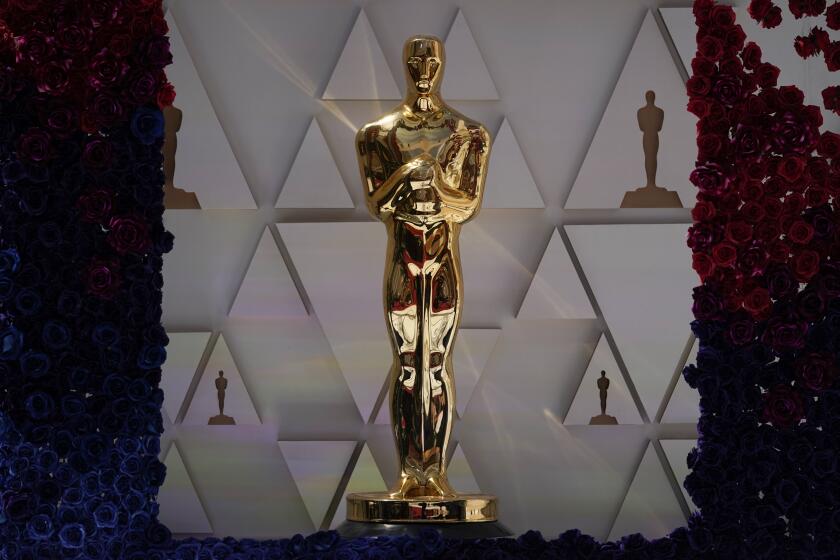Column: Hot topics make the virtual Women’s Film Festival San Diego as vital as ever
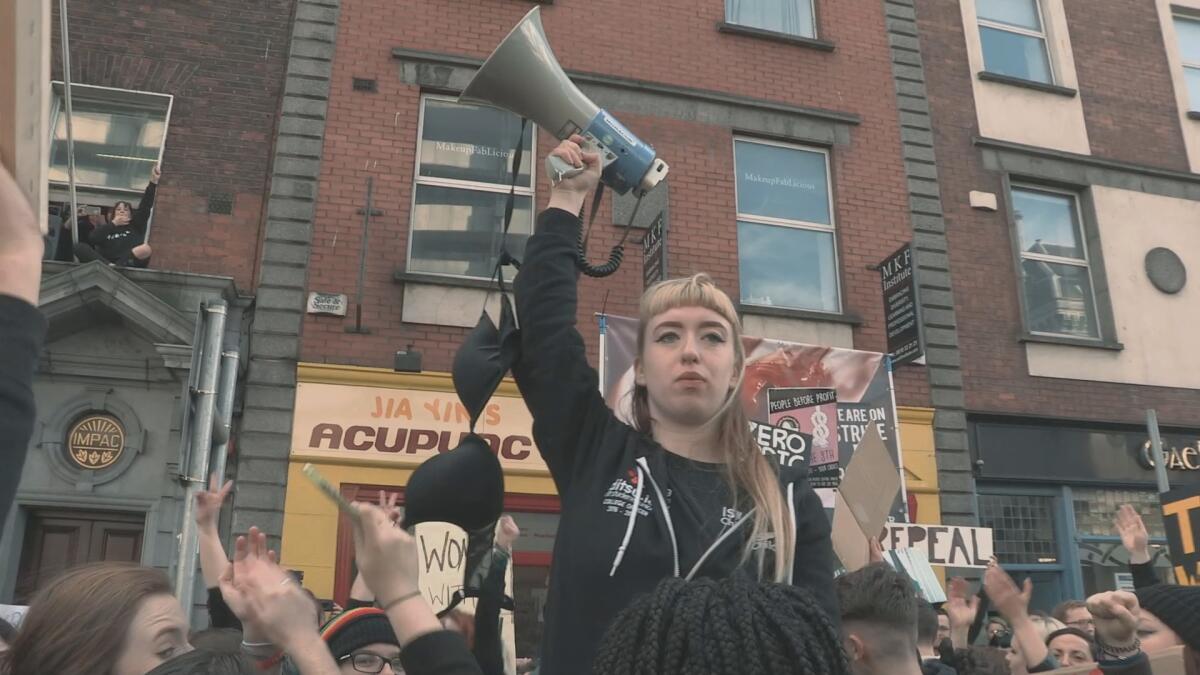
The Women’s Film Festival San Diego streams films on abortion rights, Rosie the Riveter and gender politics through Sept. 23
They come from Boston, China, Kyrgyzstan and Los Angeles. They are abortion-rights protesters in Ireland and road-trippers in California. One of them is a hologram.
Whether they are real newsmakers or imaginary visitors from a sci-fi future, all of these fierce females have a home at the 8th annual Women’s Film Festival San Diego, where films by and about women don’t have to fight for the spotlight because it belongs to them already.
“If anything ties these films together, it is the centering of women and their lived experiences in the film,” said Felicia Shaw, executive director of the San Diego-based Women’s Museum of California, which hosts the yearly festival.
“The female characters are not just the girlfriend of the protagonist. They are not peripheral to the story. They are the story. It all goes back to our mission of telling the untold stories of women’s lives throughout history, as well as women making history today.”
As it was in 2020, this year’s festival is being held virtually. All of the films will be streaming online through Sunday, Sept. 26. And while viewers will be watching from the comfort of their own screens, the films present a world of subjects, viewpoints and genres.
From the fictional origin story of World War II icon Rosie the Riveter (“Rosie”) to a short Spanish film about a man and a too-savvy sexual hologram (“Polvotron 500”), this year’s festival features documentaries, love stories, science-fiction shorts and foreign-language offerings.
The films were all directed by women, but the festival lineup also speaks to the expanded horizons of viewers who are spending a lot of quality time with their Netflix queues.
“Film lovers in general just love a good story, and streaming introduced us to so much great content during the pandemic. People probably watched more foreign-language films and documentaries than they ever have,” Shaw said. “People who love good films can see the craft these women are bringing to their work and appreciate it simply for the great art it is.”
While the Women’s Film Festival is dedicated to celebrating movies, it is also very much about the importance of changing the movie business.
According to recent studies by Martha Lauzen at San Diego State University’s Center for the Study of Women in Television and Film, the percentage of women working as directors on the 250 top domestic grossing films in the U.S. increased from a tiny 9 percent in 1998 to an underwhelming 18 percent in 2020. The percentage of women working in such behind-the-scenes roles as writers, producers, editors and cinematographers inched up from 17 percent in 1998 to 23 percent in 2020.
The numbers are still small, but they are getting bigger. When the 2021 Academy Awards nominations were announced in March, the best director category had two female nominees, an Oscar first. One of those nominees — “Nomadland” director Chloe Zhao — actually won.
And in Lauzen’s most recent report about women in independent films, the percentages of women working in all behind-the-scenes roles were at their highest levels ever.
So when Tonya Mantooth from the San Diego International Film Festival joins filmmaker Michelle Gritzer (“GLOW,” “Veep”) for Thursday’s virtual panel discussion on “The Status of Women in Film” Mantooth will have some encouraging news for filmmakers and festival attendees alike.
“The doors are flying open. I have colleagues calling me now and saying, ‘I need a showrunner or a producer, and I only want a woman,’” said Mantooth, who is the San Diego International Film Festival’s CEO and artistic director.
“This absolutely came out of the explosion of the #MeToo movement and the backlash around sexism in the industry. Everybody woke up and things shifted very quickly. That translated into, ‘Now we want an industry that looks different.’ I think women bring a different kind of storytelling, and they bring a different vision than men do. I think it’s important to see both.”
The films being streamed at the 8th annual Women’s Film Festival San Diego include:
“The 8th”: A 2020 documentary about Ireland’s campaign to remove its near-total constitutional ban on abortion. Directed by Aideen Kane, Lucy Kennedy and Maeve O’Boyle. The documentary will be the subject of a virtual panel discussion featuring filmmaker Kane; activist Ailbhe Smyth (who is featured in the film); a representative from Planned Parenthood; and a member of Women’s March San Diego. Longtime local journalist Sandra Maas will moderate. The panel will be live at 10:30 a.m. Saturday and will stream through the duration of the festival.
“Blue Moon”: A short film following two young women as they find love during one magical L.A. night. Directed by Emily Ruhl.
“Ala Kachuu”: A young woman in Kyrgyzstan becomes a victim of bride kidnapping. A short film directed by Maria Brendle.
“Rosie”: Who was Rosie the Riveter? This short film gives us the fictional origin story of the inspiring WWII poster icon. Directed by Tessa Germaine.
“Buttball”: A fifth-grader discovers that being a girl in a boys’ world is not a game in this short film from Maryll Botula.
The 8th annual Women’s Film Festival San Diego streams through Sunday, Sept. 26. The festival-closing filmmaker brunch and awards show streams at 10 a.m. on Sunday. The panels on “The Status of Women in Film” and “The 8th” will be available for free online viewing after they air. A virtual pass covering all films is $15. Streams of individual films are $5 each. womensfilmfestivalsandiego.com
Get U-T Arts & Culture on Thursdays
A San Diego insider’s look at what talented artists are bringing to the stage, screen, galleries and more.
You may occasionally receive promotional content from the San Diego Union-Tribune.

